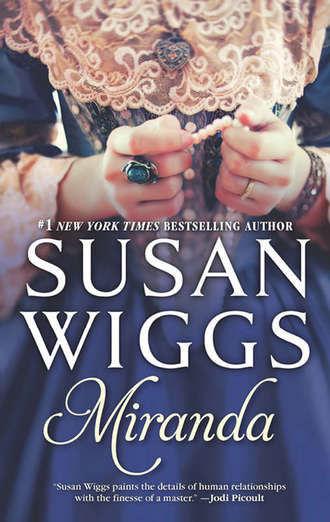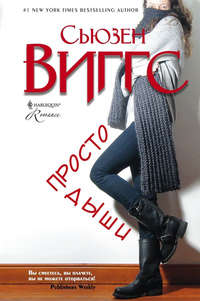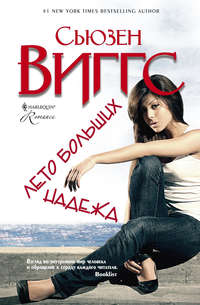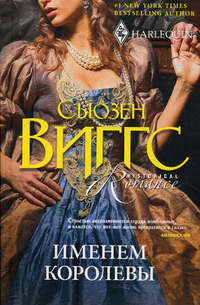
Полная версия
Miranda
* * *
“I’m certain I’ve never done this before.” Miranda gripped the forecastle rail of the sleek, swift frigate Serendipity and gazed out at the churning North Sea. She inhaled deeply, filling her lungs with the fresh, salty air, and threw back her head, wishing she could unbind her hair and let the wind ripple through it. She knew the winds. Somewhere in her forgotten past she had studied wind and weather, though she had no idea why.
“Done what?” Ian stood beside her. With a swath of plaid draped diagonally across his chest, he looked as regal as a Highland chieftain. She shivered with admiration at the very sight of him. How plain and mousy she felt next to her betrothed, yet at the same time, his appearance empowered her. To have the devotion of such a man was heady indeed.
“Gone on a sea voyage,” she said, watching the endless rush of the waves below the bow. “I feel quite sure I’ve not experienced this before.”
Sailors in the mizzentop raced along wooden booms, working the sails as the wind made the ship yaw back and forth. Miranda hugged herself and smiled at the sky burnished like copper by the setting sun. “It all feels brand-new. And so exciting... Ian—” She broke off when she saw the way he was looking at her.
As if he wanted to eat her alive.
She sometimes caught him at it, eyeing her in a manner that was both fierce and tender. Was that the way he had always loved her, with that mixture of intensity and gentleness?
“What is it?” he asked, laying one gloved finger on her wind-stung cheek.
She wondered if he had ever told her why he always wore gloves, but it felt too awkward to ask. Besides, there was something mysterious and romantic about it.
“Nothing,” she said. “Just that I know you’re frustrated because I can’t remember anything.” His touch made her tingle in secret places. Were these places he had touched...before?
She could not quite bring herself to ask him that, either. “I do want to, Ian. Truly I do.” She felt a stirring inside her, a sharp but unfocused yearning that ached in her heart. A sense of loss and longing and emptiness came over her.
“I did recall one thing,” she said.
Clear as ice shards, his gaze focused on her. His hands gripped her upper arms. “Yes?”
She so hated to disappoint him. She wanted to please him, to bring a flicker of cheer to his brooding eyes, to feel his smile like the sun on her face. “I’m afraid it’s not terribly important,” she confessed. “When I woke up this morning, I realized that I know Homer’s Iliad by heart.”
His grin looked strained. “Lovely.”
“In Greek.”
“There has never been any question of your cleverness,” he said. “You trouble yourself too much, lass. The memories will come when they come.”
“What if that never happens?”
“Then we’ll start over,” he said.
She moistened her lips, tasted the faint bitter tinge of spindrift on her mouth. The maintop men called to one another, gathering in sail from their lofty perches, and their shouts were like a sea chantey, rhythmic and pleasant.
She studied Ian for a long time. How magnificent he was, tall and lean and rugged, his black hair and sharp eyes creating a magnetism that ran deeper than his appearance. She felt drawn to him in a hundred little ways—the brush of his gloved hand on hers, the way one corner of his mouth lifted in wry amusement, or the warmth in her chest when he gazed at her.
“Is this what love is, then?” she asked impulsively.
He frowned, clearly startled. “What?”
“The way I feel when I look up at you. Is it love?”
For a rare moment, his composure seemed to slip. He appeared raw and unguarded, unnerved and vulnerable. In the blink of an eye, his customary regard of lazy amusement returned. “This is not a conversation we’ve ever had before.”
“It’s important to me, Ian. It is.” She could not take her eyes off him. “I shall describe it, then, and you can tell me if it is love or not.” She kept one hand on the rail to steady herself. “You make me feel something quite jolting inside. I find myself wanting to touch you rather boldly, to hang on to you and discover your smell and your taste and— Why on earth are you laughing?”
He made no attempt to stifle himself. “That isna love you describe, delicious as it sounds, Miranda. It’s lust.”
Miffed, she poked her nose in the air. There was more to it than that. There had to be, for he was the only man she regarded in this way, and she had made it a point to study the sailors and officers of the Serendipity. She had been on the verge of baring her heart to him, and he was laughing at her.
“Not that I am averse to lust,” he said quickly.
In spite of herself, she felt mirth tugging at her. “But I truly want to know,” she said, sobering. “What did it feel like to love you? And will I ever feel that way again?”
He turned away, but not before she detected a glimmer of torment in his craggy face. “Not if you know what’s good for you.”
“What?”
Still he did not look at her. “There are things about me—” He broke off. His hands clenched around the ship’s rail. “Ah, listen to me.” When he turned to her again, he was smiling. “I dinna want you to have any doubts, sweet.”
“Then teach me,” she said, desperate to fill the emptiness inside her. “Show me how we used to love. I want to remember, Ian. Truly I do.”
He said something gruff and Gaelic. “Lass, you don’t know what you’re asking.”
She watched a gull dive for a fish in the distance, then studied the horizon, the gray edges of sea and sky, as if the answers were written there. After a while, she glanced back at him. “Help me, Ian. Help me remember.”
“I don’t know how,” he said. “I canna simply give you your memories back, all wrapped up in a tidy parcel.”
“Then tell me something, anything. A tidbit to spark my remembrance.”
His blue eyes narrowed. “What sort of tidbit?”
“Conversations we’ve had. Experiences we’ve shared.” She could not explain how fearsome it was, this yawning black gulf inside her. It was like missing a leg or an eye. She was not whole, and she did not know how much longer she could go on. “Please,” she said. “I need to know.”
He watched her for a moment, the wind mussing his glossy black hair. “I taught you to dance the waltz,” he said, speaking reluctantly, as if the words were pulled from him against his will.
She cocked her head. “The waltz. It’s a dance, then?”
“Aye. All the rage in London this Season. The tsar and his sister, the grand duchess of Oldenburg, have made it the sport of choice.” He winked, then gripped her lightly by the waist, with one hand around hers. “The rhythm is like a heartbeat. One, two, three, one, two, three... Do you feel it?” He began to hum a soft melody in her ear.
“You have a beautiful voice,” she said.
He kept humming and drew her along the forecastle deck, neatly avoiding coils of rope, lashed-down barrels and the envious stares of the sailors. She followed his lead, letting his graceful maneuvering make up for her inexperience. Round and round they spun, the rich melody lilting in her ear until the rhythm finally penetrated her very bones. They moved as one, and she reveled in the way they seemed to fit together, in the light scrape of their feet on the wooden deck and the hiss of the ocean speeding past the hull.
“There is,” she murmured, “something magical about dancing. Why is that?”
His hand moved in a circle on her back. “Well,” he said, stretching out his Scottish burr, “dancing involves two people, holding each other, moving in a rhythm both understand, their goal to stay together, for no reason other than sheer physical pleasure.” He smiled wickedly, and a shiver shot down her spine. “There is only one other circumstance in which all that is true.”
She snatched her hand out of his. Hot color surged to her cheeks. “Ian!”
He leaned against a tall spool of rope and watched her, clearly amused. “Aye, love?”
“Have we...did we...”
He threw back his head and laughed. “My dear, if you had forgotten that, I’d say there’s not much hope for us.” Seeing her unamused expression, he took both her hands in his. “Believe me, Miranda. To my eternal frustration, and through no choice of my own, we have never made love.”
“We were waiting, then.”
“Aye.”
“For marriage.”
He hesitated. “Aye.”
“Mary Wollstonecraft didn’t believe in marriage on principle.”
“She may have a point.”
Miranda found herself laughing again, feeling giddy.
“You’re an incredibly desirable creature, Miss Stonecypher,” Ian said.
She wondered if he had any idea how entrancing he was. “Tell me more,” she said. “I feel that if I could remember even one moment, if I could just look back and know, then everything would come right.”
“I dinna think it’s that easy.”
“Indulge me,” she said. “Please.”
“The Orangery in Hyde Park,” he said.
“Should that be significant to me?”
“Oh, aye.” He paused. “Your first kiss.”
She felt her color deepen. “Surely a significant event if there ever was one.”
“And you dinna remember it.”
“No.” She stared at his mouth. “I’m sorry.”
“Don’t be.” He took her hand and led her toward the bow of the ship, where they stood in the cool evening shadows. Sails luffed in the wind, and the cry of a cormorant droned mournfully across the swells. “Actually, it’s rather an advantage.”
She began to tingle inside. “An advantage?”
“Oh, aye. You can have your first kiss...all over again.”
With a discreet movement he took off his gloves, dropping them on the deck at their feet.
She felt faint, yet dizzily aware all at once. Nervously she licked her lips. “I’m afraid I don’t know what to do.”
“What you’re doing now is just fine. For the moment.”
“What am I doing?” she asked.
“Standing there. Looking bonnier than heather in bloom.”
He took a step closer. His hands drifted down the length of her arms, heating her skin. The pads of his thumbs found her racing pulse.
“Was it like this...before?” she asked.
“Nay, love. This is better.” His hands traveled up and over her shoulders. His fingers threaded their way into her hair, sifting through the curls.
“Now what?” she whispered.
Though he did not smile, amusement glinted in his eyes. “Just keep your head tilted up. Aye, like that.” He bent low, his face looming close, his breath, with the tang of his evening brandy, caressing her. He touched his lips tenderly to her eyes, first one and then the other, so that they were closed. Then he kissed her mouth, softly, tentatively.
“I can stop at any time,” he whispered, “if this makes you uncomfortable.”
She smiled dreamily. “Uncomfortable is not quite the word for what I feel.”
He kissed her again, tugging gently on her lower lip until her mouth opened and she surged toward him, hungry, wanting. The taste and smell of him filled her—sea and leather and maleness, seasoned with the brandy they had drunk after supper. The sensation of kissing him caused passion to leap up inside her until she was straining almost painfully for him.
His hands slipped from her hair and traveled down, tracing the inward curve of her waist and the outward flare of her hip. Then he touched her breasts, hands brushing, fingers skimming the tips. Warmth seared her in places he wasn’t touching, places that begged for his caress.
Then, as gradually and inevitably as the kiss began, it receded. He lifted his mouth from hers, and his hands dropped to her waist.
She kept her eyes closed, holding the moment, hovering in uncertainty and wonder and delight.
“Miranda?” he asked.
She forced her eyes open. She reached up and touched his cheek. His tanned skin was rough with evening stubble. “I feel completely starstruck, Ian. Bowled over like a ninepin. Was it like that for me before?”
“You never said.” His voice sounded gruff and uneven.
“I was trying to remember what it was like to love you,” she said. “But I feel as if I’m learning for the first time.” That something so simple as a human touch could shake the foundations of her heart was a staggering notion. “Ah, Ian.” She spoke his name on a sigh. “You are so good to be patient with me.”
He took her hand, removed it from his cheek and kissed the back of it. To her surprise, his own hand trembled. “You make it easy, Miranda.” She thought she detected a note of bitterness in his voice when he added, “Too bloody easy.”
* * *
Guilt was a new and decidedly unpleasant sensation for Ian MacVane. Yet as he lay awake in his narrow, damp quarters each night of the voyage, he knew guilt in all its sharp and bitter shades.
He was manipulating the feelings of a naive young woman. Whatever else Miranda’s crimes might be, she was innocent when it came to matters of the heart.
But not for long, if they stayed on their present course.
I was trying to remember what it was like to love you. Her words snapped back at him like a lash. She was driving him insane with her unwavering trust in him.
Trust. Miranda trusted Ian MacVane. She was by far the first woman foolish enough to do that.
She wanted memories, and he was giving them to her. False, hollow tales he dredged from his paltry stores of sentiment.
If ever a man had a past that begged to be forgotten, it was Ian MacVane.
Instead here he was building a castle of lies in order to win Miranda’s faith and perhaps, if he was very lucky, find the memories she kept locked away in her mind.
He kept wondering if he should have simply handed her over to Frances. Perhaps that would have been better all the way around.
The morning they’d taken ship, Frances had shown her customary lack of surprise at his flagrant disobedience. She’d even sent him a message in cipher: Perfect, darling. I do so love it when you do something scathingly clever and cruel. Yes, sleep with the girl. It is the best way to—dare I be so tasteless?—get her to reveal herself to you.
At the bottom of her note, he had scribbled a reply in cipher and sent it back to her: When I bed a woman, my dear, it’s for my own reasons, not because anyone orders me to.
Even then he had known he would find a reason. The whole matter was sordid. He had a sudden notion to turn his back on the entire affair, but he knew he would not.
Time was not critical yet. The duke of Wellington was still in Paris, ambassador to the newly restored King Louis. But once Wellington returned to England, Napoleon’s allies would put their plan into motion.
Ian had pledged to foil the insane plot. Bound by his own private sense of honor, he knew he would not rest until he succeeded in stopping the conspiracy.
Even if it meant filling Miranda’s head and her heart with his lies. Even if it meant a cruel betrayal of her trust. Even if it meant taking her innocence and ruining her reputation.
He pounded his fist into his hard pillow. Surely it wouldn’t come to that. Surely she would regain her memory and divulge the plan before things had gone too far.
When the smoky gray mist of a Scottish dawn tinged the sky, he gave up on sleep. He had lost sleep over only one woman before Miranda, and that was his mother.
For all that Mary MacVane knew or cared.
Shoving aside thoughts of a past he could not change, Ian got up and bathed with water from a basin, then dressed in the black trousers and white shirt Duffie had set out the night before. Soon they would make landfall.
Today Ian would begin a journey from which there was no return. For him, Scotland was a place of memories and madness. Here, his world had been torn to unrecognizable bits by a stranger with greed in his eyes. His soul had been damned by the woman who had given him life.
Once he had escaped Scotland, Ian MacVane had been reborn, a creature of darkness, his past scoured clean through sheer force of will.
Perhaps that was why Miranda held such fascination for him. She had achieved what he had been trying to do all his adult life. She had obliterated the past.
Her means of doing it, however, held little appeal for him. In his soldiering days, he had seen men wake up the day after battle with no notion of the horrors they had seen, of acts that had been committed upon them, of atrocities they themselves had carried out.
At first, the postbattle blankness had seemed a blessing. But the memories always returned in one form or another, weeks or months or years later. Nightmares. Fits of rage or terror. An inability to cope with everyday life. Was that to be Miranda’s fate?
He donned a waistcoat of boiled wool and reached for his gloves. Before pulling them on, he braced his hands upon a sea chest at the end of his bunk and studied them. They were large and squarish, hands suited to the son of a hardworking crofter. Except that the crofter had been murdered in cold blood, his young son sent to toil in Glasgow at tasks so grueling that they were performed only by orphans or slaves.
Ian scowled down at the stub of the last finger on his left hand. The digit had been chopped away at the first knuckle, and the only concession he had gotten after the accident was half a day’s holiday and an extra slice of bread at supper.
Och, how he wanted to forget. Instead he remembered every detail with crystal clarity, as if he were viewing his past through a perfect glass that showed him not only the sights, but the smells and sounds and textures, as well. The reek of soot and blood. His brother Gordon’s bitter curses. Ian’s own horrified screams. The dizzying view of the street far below the rooftop where he had been stranded. The sensation of abject fear that had roared through him as Gordie fell.
He made a fist, hiding his deformity. Then he forced himself to open his hand. Today, no glove. No shoving his hand into his waistcoat à la Bonaparte.
Ian MacVane would return to Scotland as he had left it: maimed and full of rage.
Six

On ev’ry hand it will allowed be,
He’s just—nae better than he should be.
—Robert Burns
After the landing, Ian stood on the rocky shore, oblivious to the movements around him, oblivious to the delighted shouts of young Robbie, oblivious even to Miranda, whose presence had consumed him since the moment he had laid eyes on her.
He simply stood, feeling the solid earth beneath his feet and trying to get his mind around the fact that after an exile of fifteen years, he was home. In Scotland.
How much had he changed, he wondered, from that wounded boy, skulking to freedom by hiding in a ship’s hold?
He was staggered by how deeply he had missed his homeland. He drew the feeling in through his pores, and into his lungs with each breath, and the very essence of the land began to pulse through him. This was Scotland, his birthplace.
Here, he had suffered the torments of the damned—but also, in that early misty time of his youth, he had known his greatest joy. Had known the crystal sharp air of the craggy Highlands as he’d raced across the moors after a stray lamb. Had known the sweet, warm scent of a mother and the hearty affection of a father.
Ah, how long ago that had been. The boy who had gamboled through glens and boggy moors, who had fished for trout in the icy streams and chased squealing girls in the kirkyard on Sunday, was as good as dead.
Ian MacVane knew the name of his murderer. Adder, like the snake. Mr. Adder, the sly-eyed Englishman. He had swept like a storm into Crough na Muir, claiming that the crofters were trespassing on his property. And so they were, on land relinquished to him by the laird whom Adder had beggared at the gaming table.
Ian drew in another breath of Scotland. He felt as if he were falling, falling back into the hideous past, squarely into the night Adder and a troop of mercenaries had swooped down upon the croft of the MacVane...
He heard a sound that didn’t belong to the night. Below the living quarters, the cows blew gently in their sleep. Then the sound came again. It was a soft whistle—not an owl or a nightingale, but a human sound. The dog reacted first, leaping down from the loft, yapping wildly.
He heard a sickening thump, and the dog fell silent. By then Ian’s father was up, pitchfork in hand, but it was too late. Too late...
Miranda broke his fall. She did it with something as simple and as complicated as the brush of her hand on his sleeve, a tilt of her head, a querulous smile. “You were a thousand miles away, Ian,” she said. “And it was a sad place.”
He fought the urge to shake her off, to lash out like a wounded wolf, to recoil from her compassion. Instead he managed a wry half smile. “Reading my moods, are you?”
“Didn’t I always?”
“Of course.” Christ, but this was absurd. Inventing a past for them, pretending they had a future.
No one’s future was assured so long as fanatic Bonapartistes kept hatching their plots in England. Ian wondered how the British could be so blind. They and all their allies were convinced that Napoleon would rest content in his defeat in exile. But Ian understood the brilliance and determination of the emperor, the loyalty of his followers. Exile at Elba was surely but a temporary state for such a man. Bonaparte would be back. Already he was coiled like a snake, poised to strike.
Impatience stirred within Ian. He had best make quick work of the marriage—a handfasting would do—and hasten back to London.
“We’ve always been of one mind, lass,” he said, forcing gentleness into his voice as he lied to her. “And my guess is, you’re of a mind for a good bath and a meal.”
“I am.”
Duffie and Robbie had gone on ahead with the baggage. Ian scanned the road that wound up and around the great rising hills. He had not stood on this spot since he was a lad. Yet he knew people would still remember him in the village.
A part of him still dwelt there.
He started toward the settlement, old and tumbled and comforting as a tattered blanket.
After walking along the dusty road for a quarter mile, Miranda stopped him. “Ian.”
“Aye, lass?”
“I don’t remember my own past, save what you’ve told me. But I know nothing of your past, either.”
Конец ознакомительного фрагмента.
Текст предоставлен ООО «ЛитРес».
Прочитайте эту книгу целиком, купив полную легальную версию на ЛитРес.
Безопасно оплатить книгу можно банковской картой Visa, MasterCard, Maestro, со счета мобильного телефона, с платежного терминала, в салоне МТС или Связной, через PayPal, WebMoney, Яндекс.Деньги, QIWI Кошелек, бонусными картами или другим удобным Вам способом.









